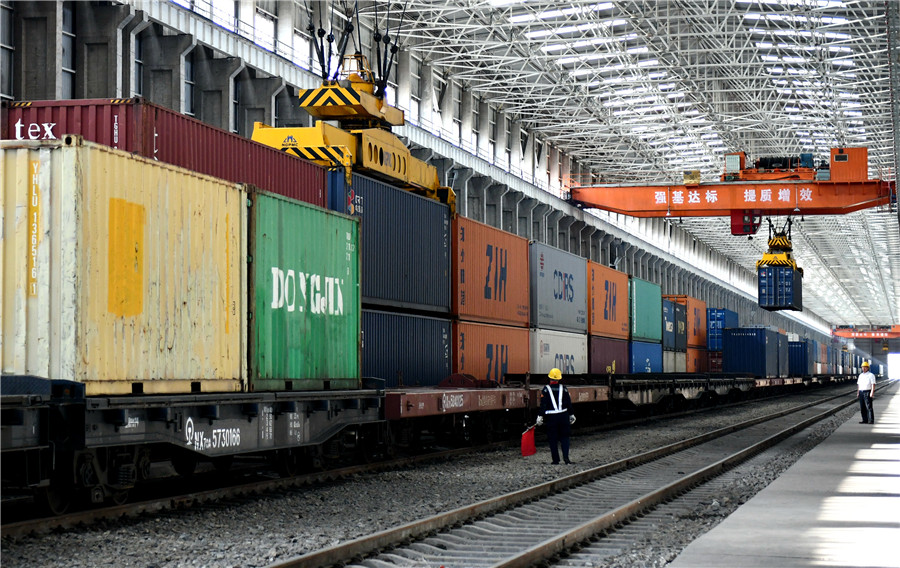Freight trains on track to drive Xinjiang economy
This is the fifth in a series of stories focusing on the Xinjiang Uygur autonomous region, looking at developments in the economy, the cultural and business sectors, and poverty alleviation measures.
With the completed customs clearance documents for 80 imported high-end cars in his hand, Zhang Xiafei arrived at the customs office at the land port of Alataw Pass, Xinjiang Uygur autonomous region.
Containers from a train that originated in Poland are loaded onto a train bound for Chongqing, Southwest China, at an indoor transfer station at the Alataw Pass, Xinjiang Uygur autonomous region. [Photo/Xinhua]
Within minutes, a customs officer had logged all the details required for the vehicles to enter the Chinese market via a freight train service that connects Europe and China.
"These Porsche cars left Poland nine days ago. In a few days, they will arrive in Chongqing. The China Railway Express service is very reliable and punctual. More important, it has helped cut transportation times by half compared with moving the goods by sea," said Zhang, an employee of Jie'an Logistics, a freight company that has used the service regularly in the past year.
The China Railway Express, aka the China-Europe freight train, is a network of rail services that carry cargo between China and Europe via Central Asia. Nearly 70 percent of the trains use the Alataw Pass, a land port in the Gobi Desert on China's border with Kazakhstan.
In March 2011, the first such service left the southwestern city of Chongqing headed for Duisburg, Germany. By the end of last month, 5,900 China Railway Express and China-Central Asia trains had used the border crossing.
The rising number of services and their growing popularity has made Northwest China's largest land port busier than ever.
From January to the end of last month, 851 China Railway Express trains used the Alataw Pass crossing. The value of the freight they carried was $5.2 billion, a rise of 69.6 percent year-on-year, according to the latest figures from the Alataw Pass Customs.
Every day, border security and customs officials deal with large numbers of trains and trucks lined up at checkpoints to be inspected, heading to or coming from countries in Europe and Central Asia. Meanwhile, crude oil is constantly pumped to China from Kazakhstan via a network of subterranean pipelines.


